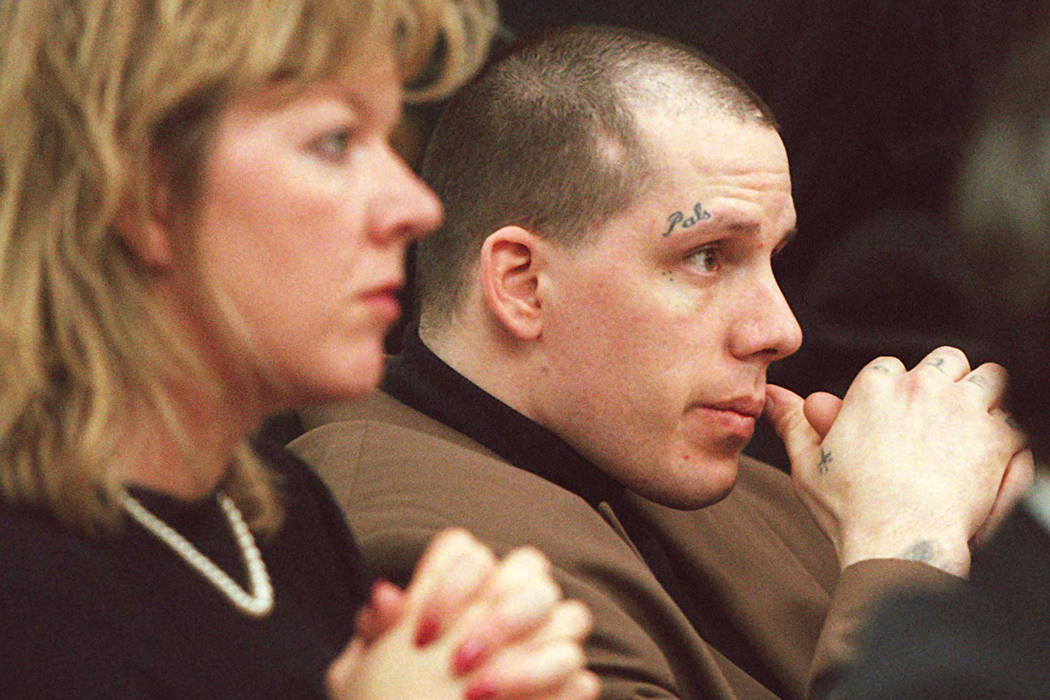Another Nevada death row prisoner wants to be executed
Another death row inmate in Nevada wants to be executed.
Nearly two months after condemned prisoner Scott Dozier killed himself in Ely State Prison, court papers filed Monday revealed that convicted Las Vegas murderer Kevin Lisle has indicated that he intends to stop fighting his case.
“Given Lisle’s clear intention to waive his appeals with the understanding that he would be put to death, there is every reason to believe Lisle’s execution could and would take place prior to January 30, 2020,” Chief Deputy Attorney General Randall Gilmer wrote.
In the court brief, the prosecutor included a copy of a handwritten motion from Lisle that stated he “hereby WAVES (sic) HIS RIGHT TO APPEAL of his own will with the complete and competent understanding that ELY STATE PRISON EXECUTIONERS will put him to death by leathal (sic) means.”
The motion was signed by Lisle on Feb. 13.
Dozier first waived his appeals in October 2016, and his death wish lingered in the court system before he died by hanging in January.
Lisle, now 48, was convicted in the 1994 killings of 19-year-old Kip Logan and 19-year-old Justin Lusch, who was the son of then-North Las Vegas Police Chief Ron Lusch.
Prosecutors at the time said that Justin Lusch was shot and killed, execution style, in a deserted area in the northwest valley.
The second killing occurred when John Melcher, who was driving on a Las Vegas freeway, pulled alongside a Mustang driven by Logan, a former Bishop Gorman High School student. A jury found that Lisle, the front passenger in Melcher’s van, shot and killed Logan.
Melcher and another passenger testified against Lisle at his trial.
Jurors found Lisle guilty of first-degree murder with a deadly weapon in both cases and sentenced him to death.
Lisle’s death wish came to light in the prison system’s appeal of District Judge Elizabeth Gonzalez’s decision to bar the Department of Corrections from using drug company Alvogen’s sedative in lethal injection, essentially halting Dozier’s planned execution.
The Nevada Supreme Court had asked lawyers to explain why the case was still relevant after Dozier died.
Alvogen’s lawsuit had accused the prison system of surreptitiously obtaining the drug for use in the execution.
Lawyers for the Nevada attorney general’s office, representing the Department of Corrections, questioned whether the makers of a sedative planned for use in the lethal injection could stop the death penalty.
Two days after Lisle’s motion was filed, Nevada lawmakers introduced legislation to abolish the death penalty.
Attorney General Aaron Ford, who took office in January, has expressed opposition to capital punishment, though he has vowed to uphold state laws.
“The state has a legal duty to enforce capital punishment,” Gilmer wrote. He added: “So as long as Nevada law provides for capital punishment, there is a likelihood that similar issues as presented in this case will arise in the future.”
Alvogen’s lawyers, with the firm Pisanelli Bice PLLC, also cited Lisle’s execution request in a separate filing on Monday, writing that Gonzalez’s decision was “broader than Dozier’s execution,” adding that the prison system “continues to wrongfully possess Alvogen’s midazolam.”
The judge’s decision to block the state from using midalozam, a sedative, in lethal injection, “continues as a live controversy, particularly in light of Lisle’s recent announcement,” the filing said.
Contact David Ferrara at dferrara@reviewjournal.com or 702-380-1039. Follow @randompoker on Twitter.
Kevin Lisle filing by on Scribd























